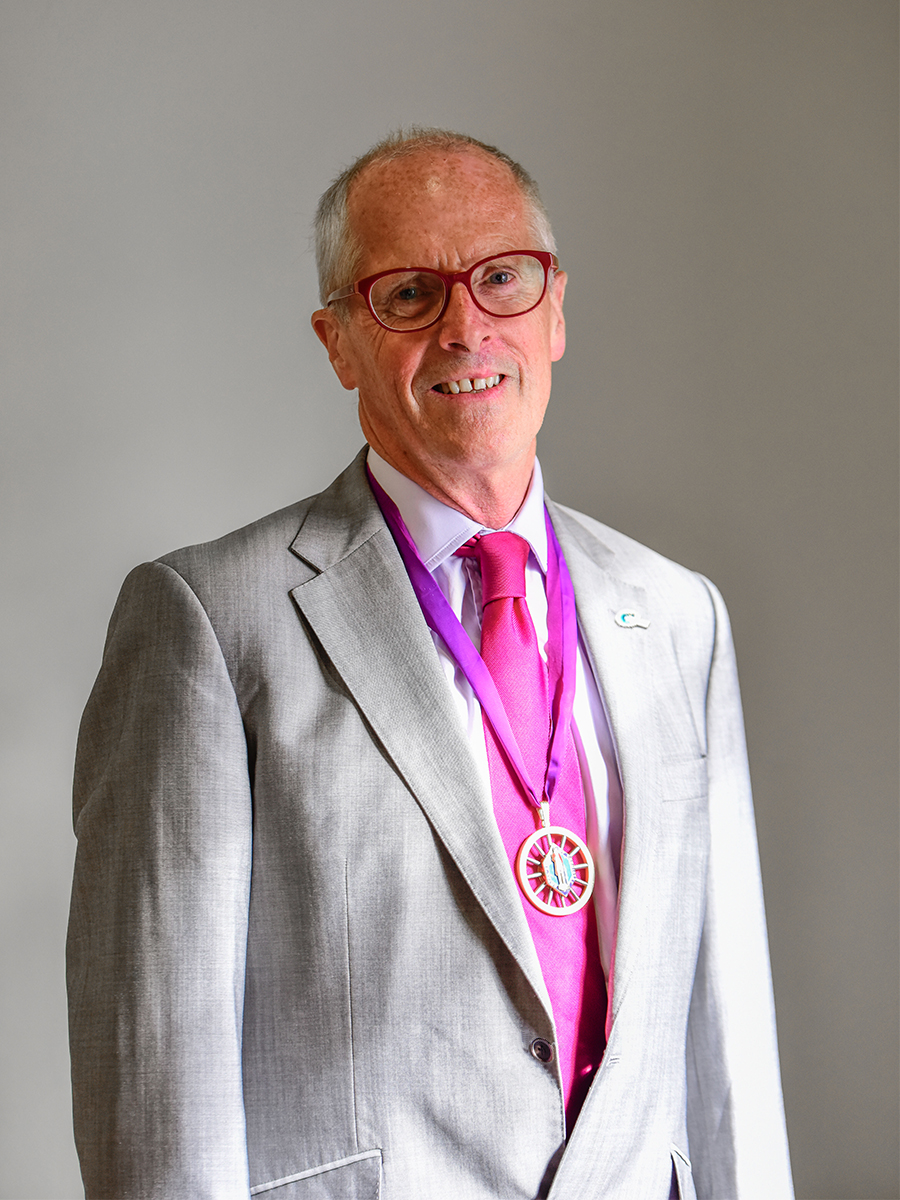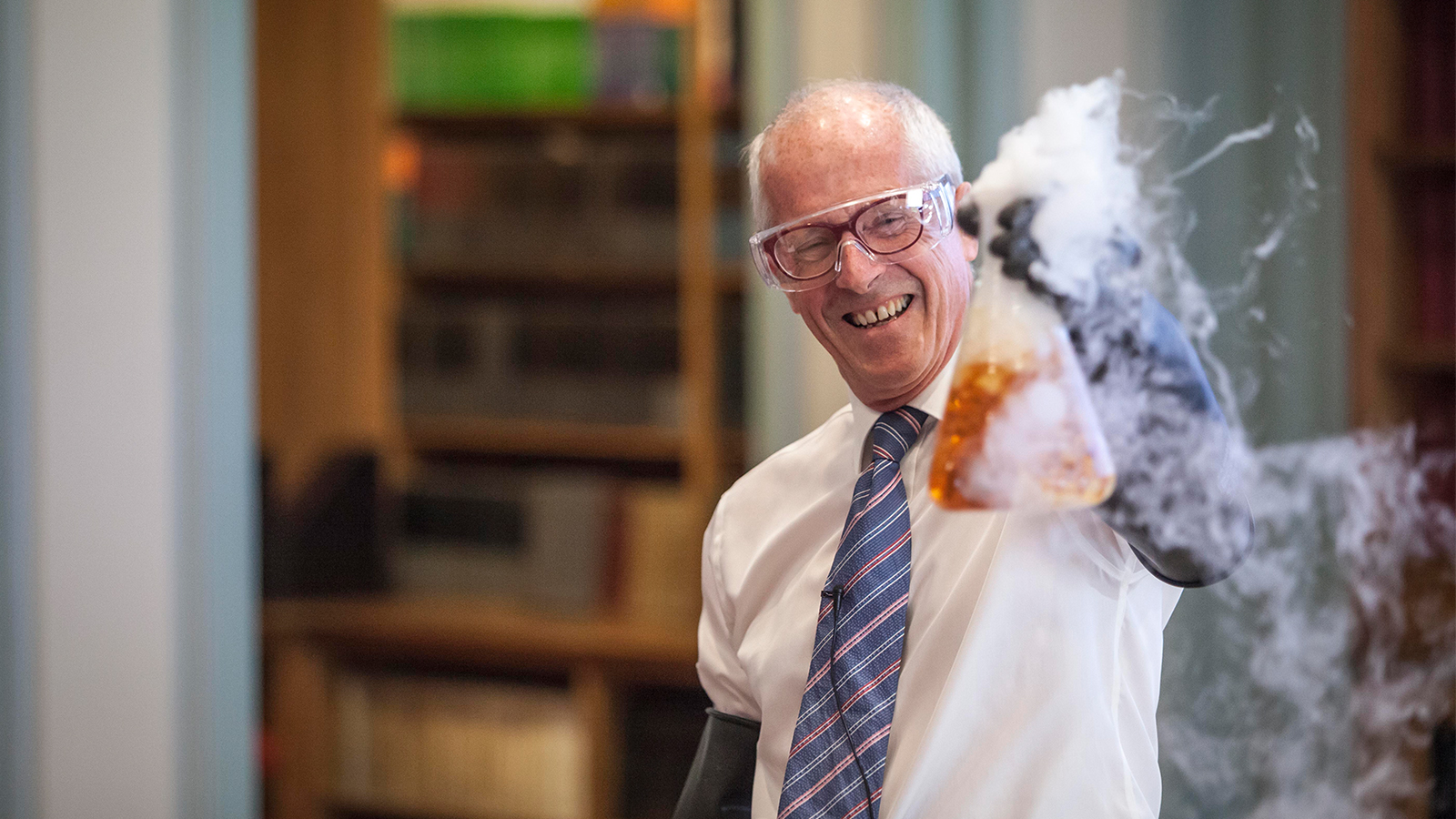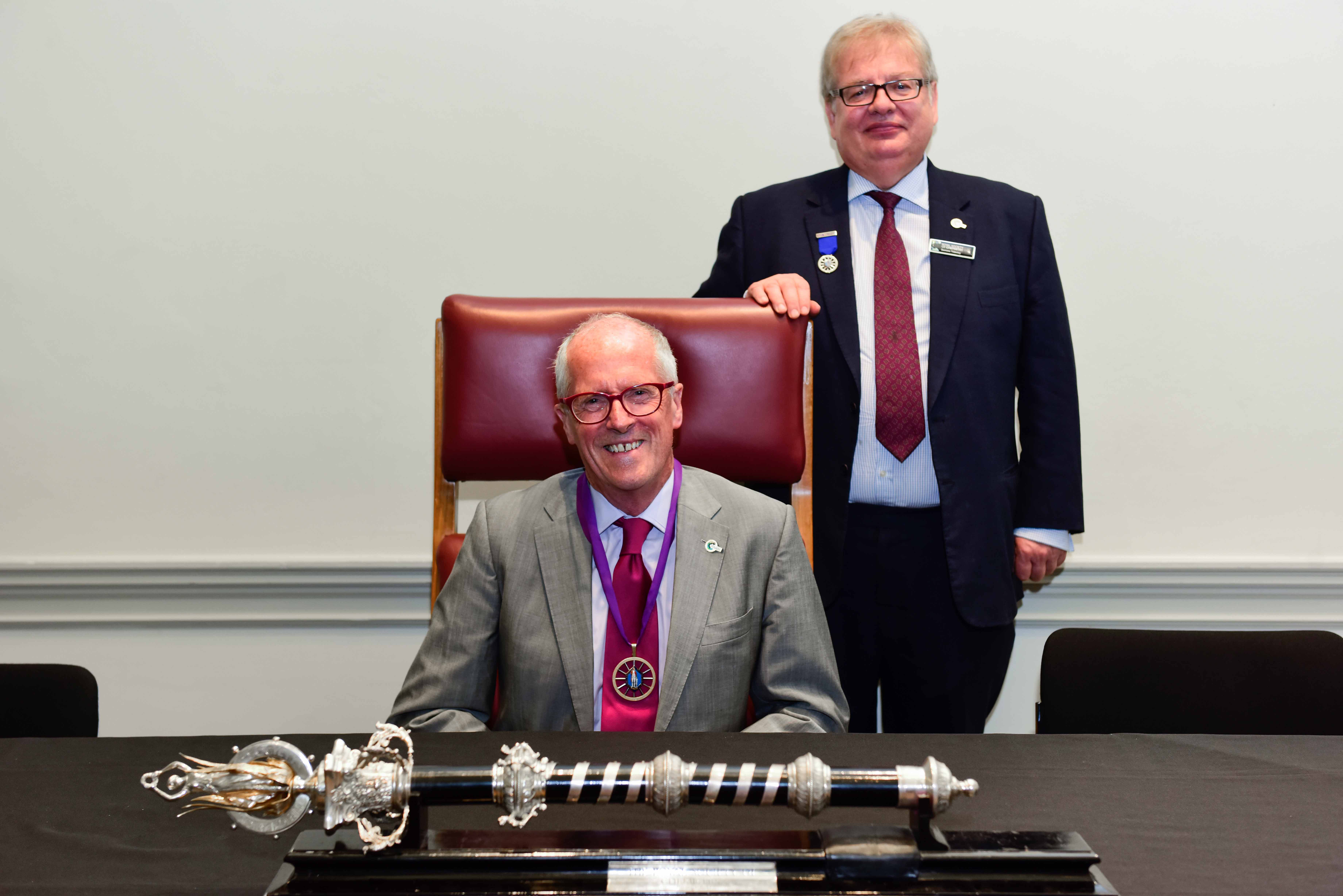Presidential plans
At our 2016 Annual General Meeting on 6 July, Professor Sir John Holman took the helm as our new president. We caught up with him about our recent achievements and plans for his presidency.
I have been a member of the Royal Society of Chemistry since 1983, when I was head of chemistry at a secondary school. Being a member has given me great pride in my professional identity as a chemist, and helped sustain me throughout my career as a teacher.
It’s a great honour to be elected president of such a diverse and successful organisation. Last year, we did more than ever to advance excellence in the chemical sciences and I’m looking forward to building on these achievements.
As our first president from a school educational background, I am particularly pleased to see our support for chemistry teachers and students. Over the next two years, I would like to see us increase our influence in education practice and policy.
We need to work with our members so that we can communicate the importance and relevance of chemistry as powerfully as we can

Our new president, Professor Sir John Holman Picture: © Royal Society of Chemistry / MPP Image Creation
Take vocational and technical training...
Historically, in the UK we haven’t been good at recognising the importance of technical skills compared to countries like Germany. But the reality is that nearly half of British employers say they are facing a shortfall in technicians.
I would like to see us do more to promote and celebrate technicians, just as we promote and celebrate people who achieve academic success. And it’s vital that we continue our efforts to widen participation in chemistry, so that we benefit from a full range of talent. That means male and female, rich and poor, and all the other aspects of diversity.
I was also inspired by our research on public attitudes to chemistry and I want to make sure we put the findings into practice. We know now that telling people they’ve got chemistry wrong doesn’t work. We need to listen to people and start from their level of understanding and what interests them. I’ve been as guilty as the next chemist of being intolerant.

John in action giving a chemistry demonstration at Burlington House Picture: © Royal Society of Chemistry / John Rogers
Once somebody at a dinner party, knowing my background, asked me to 'pass the NaCl'. I explained how if you burn some sodium – a dangerous metal – in chlorine – a poisonous gas, you end up with this harmless substance. The man responded by saying that wouldn’t be pure salt. He thought that salt from the sea was a different chemical because it was 'natural'. I was pretty dismissive and changed the subject. Now I wonder how the conversation would have gone if I had spoken to him as an equal.
More recently, I had very different experience when I took a more open approach. Quite by accident I got talking to a woman on a train who was the artistic director of a modern dance company. She asked if I had any ideas about dances on scientific themes. As it happened, I’d just been doing some work on the structure of lysozyme. She didn’t look terribly interested. But when I said that you find this protein in tears, she immediately saw the link between the emotional and the scientific.
I became the scientific adviser on TearFall, a dance performance that explored the biochemical make up of tears, which was performed at the Royal Opera House and across the UK last year. Some of the chemistry was quite loosely interpreted through movement, but a short speech at the beginning of the performance put the chemistry of protein structures on a sound footing.
The experience showed me the power of using different media to reach people who might not traditionally be interested in science. It also taught me the importance of adapting to your audience. Usually academics are very worried about being accurate, because we need to protect our reputations. But in this context, I realised it was appropriate to be a bit more relaxed in how we interpreted the science.

Our incoming and outgoing presidents, Professor John Holman and Professor Dominic Tildesley Picture: © Royal Society of Chemistry / MPP Image Creation
I’m proud to become president in our 175th anniversary year...
We have an incredible heritage, significant financial resources and an international reputation for excellence. As trustees, we have a duty to protect these assets and to pass the organisation on to the next generation in good shape. That’s why I am making it a priority to ensure we are sustainable for the long-term.
The Royal Society of Chemistry is a fantastic mosaic of different kinds of people doing different kinds of chemistry and, as president, I want to make sure we represent and support all of these diverse elements
As part of this, I will be leading a governance review. There are plenty of examples of organisations that once did great things getting into difficulty because they did not periodically review and evolve their governance systems to effectively deliver their responsibilities.
We want to make sure that we have the right structures and processes to enable our trustees to fulfil our Charter objectives, and take effective decisions for the future.
As well as protecting the organisation, we need to prepare for future uncertainty and future opportunities. Last year, we ran our Future of the Chemical Sciences initiative, to challenge our thinking about what chemistry and chemists might look like in 10 to 20 years. I look forward to using the insights to inform our long-term planning, and to sharing them with our community.
Most of all, I’m looking forward to getting to know our members better over the coming months, particularly those in areas I’m less familiar with, like industry, which is such an important part of our chemical community.